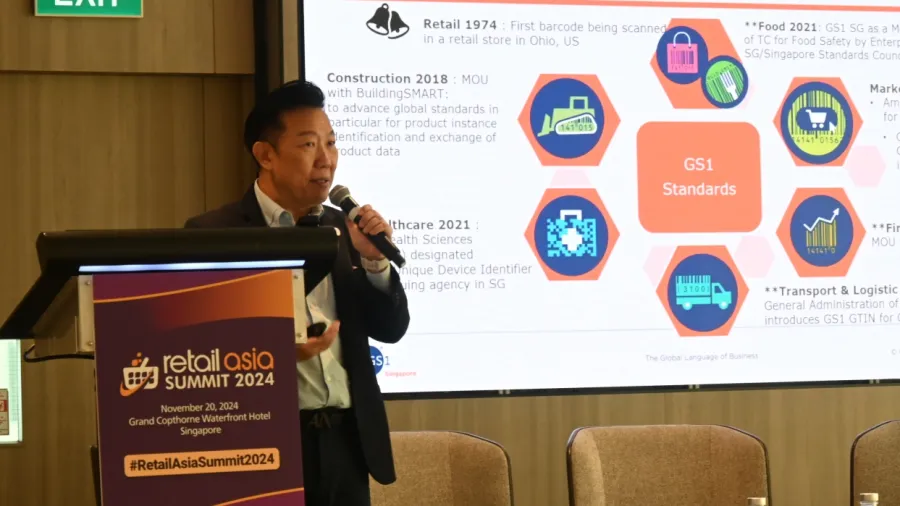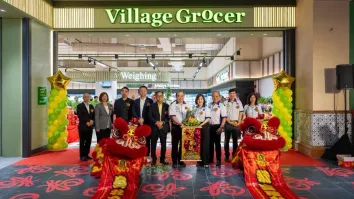
Retailers urged to adopt 2D barcodes
The machine-readable symbol gives consumers detailed product info at the point of sale.
Global retailers should start using 2D barcodes by 2027 to make products more transparent, according to GS1 Singapore Ltd.
“[By] 2027, our ambition is, which is only three years down the road, that the entire world at the retail point of sale system [will have been] able to scan a 2D barcode," Christopher Ang, CEO at the nonprofit group, told the Retail Asia Summit 2024 in Singapore on 20 November.
Ang noted that the 2D barcode – a machine-readable symbol that uses lines, spaces, and characters to represent data – lets customers access detailed product information at the point of sale.
GS1 operates through a membership model, allowing businesses to adopt standardised barcodes like the GS1 Global Trade Item Number (GTIN). Nearly 60% of GS1's members are in the retail sector, with food services and healthcare also forming a major part of the group.
For over 50 years, the 1D barcode has been the industry standard, but Ang said it has limitations. Unlike 1D barcodes, which only store basic product data, 2D barcodes contain a wealth of information such as a product’s origin, sustainability practices, and certifications.
However, the shift relies on more than just technology. Collaboration across the entire supply chain is needed too.
"If you have a brand owner who implements the 2D barcode, but the retailers are not ready with the equipment, the firmware, the software, the hardware, it will not work," Ang said.
Ang noted that 2024 marks the 50th anniversary of the first retail barcode scan in Ohio, USA, which revolutionised point-of-sale systems worldwide.
He also cited the increasing adoption of GS1 standards by major platforms like Amazon and Google, which both endorse the barcode as a key listing tool.
Ang also urged businesses to embrace digital transformation and commit to sustainability, positioning GS1 as a key enabler of these changes.
He cited the rising trend of seamless commerce, a concept that goes beyond omnichannel retailing to create a smooth consumer experience.
Citing a recent KPMG survey, he noted that 86% of Gen Zs support brands with clear sustainability commitments.
The survey also found that 63% of Gen Z consumers view social commerce as a key part of their shopping experience, with 57% thinking that livestreaming enhances their buying decisions.
“We think that in order to get growth for your business, and particularly stay ahead of the market trends, you must engage with Gen Z,” Ang said.



















 Advertise
Advertise







